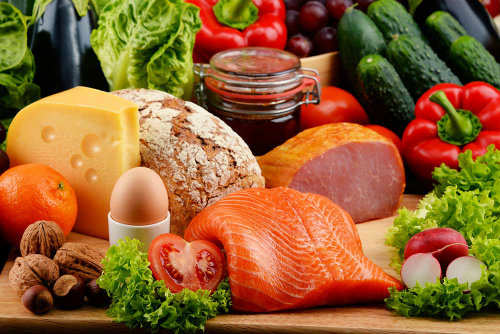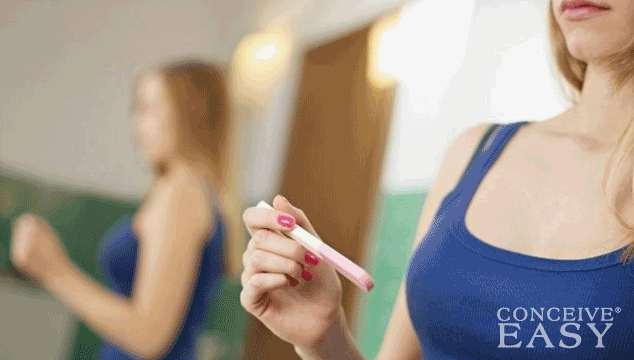![]() The information provided by our expert should not constitute a diagnosis of your condition. Always consult a medical practitioner or healthcare provider for a formal diagnosis. By making use of this content, you agree that ConceiveEasy and the expert assume no liability.
The information provided by our expert should not constitute a diagnosis of your condition. Always consult a medical practitioner or healthcare provider for a formal diagnosis. By making use of this content, you agree that ConceiveEasy and the expert assume no liability.
< span style="font-weight: 400;">If you and your partner have been trying to conceive for over 6 months, or longer, or for a shorter amount of time than that and conception has not happened- the first thing to do is to not panic. Unless you have had a history of having irregular periods and/or you are 35 years old or older- your doctor will not suggesting that you have any kind of intervention unless you have been trying for a year. Here are 10 steps to take now if you want to get pregnant. Claim Your 20 Free Pregnancy Tests – Click Here
If you have been trying for a year, and you are under 35 years of age, and you have regular cycles, then there are steps you can take to help your odds of conceiving. Let’s take a look a look at what you can do to increase your chances of achieving that pregnancy that you are wanting to have so badly.

Go for a medical checkup
Yes, you do need to see your doctor if you have not had a checkup before attempting to conceive. But, again, this does not mean your doctor will send you to a fertility specialist and give you treatments at this point unless something abnormal shows up in your bloodwork.
If you are not having any kind of worrisome symptoms, the odds of your doctor making any discoveries about your health are slim. However, if the reason that you are not conceiving is that your weight is too high or too low, then you will need to make adjustments. And the kind of adjustments to make comes in when the next step is covered.

Consult with a dietician or nutritionist
If you need to make changes to your weight, your doctor will refer you to either a dietician or nutritionist to help you gain or lose weight so you end up at an optimal level. Ideally, you should see a nutritionist that will give you guidance on sticking to a fertility friendly diet.
And, even if you don’t need to make changes to your weight, it is a good idea to consult with a professional regardless to give you guidance on the foods to eat. More of that will be covered in the next step.

Make adjustments to your diet
It is a good idea to see a nutritionist or dietician that specializes or is knowledgeable about fertility friendly foods. However, if you want to receive the heads up on that before you make the call, then it is time to learn about the fertility friendly diet.

You probably are aware already that eating too much junk food that is consisted of refined carbs and trans fats such as fast food, cookies, pastries, cakes, white bread, white rice, candy, sugary cereals, potato chips, cheese curls, and so on must be strictly limited- and better yet, avoided completely.
However, enjoying a treat once on a weekend won’t be detrimental in any way. But the problem with junk food is that it not only causes weight gain, but it causes your blood sugar levels and insulin levels to spike even if you are not diabetic. When your insulin levels are up, ovulation is inhibited and your general health is negatively affected as well. If you indulge in junk food for a treat once a week, however, you won’t be affected.
The same applies to men. If they consume too much junk food, it will cause their hormone levels to be imbalanced which will have a negative impact on their sperm count, quality, and motility levels.
While you would have to make sacrifices such as limiting the foods that taste so good but are not so good for you, you will have to what is best to help you achieve that pregnancy. That means to start eating fertility friendly foods, such as foods that are rich in vitamins and minerals that you will need to help to keep your hormones in check.
The foods to stick with are the following:
Green leafy vegetables such as broccoli, spinach, asparagus, Brussel sprouts, and kale. These vegetables are not only rich in the vitamins and minerals you need but are rich in folate which is important for your unborn baby’s brain development. That also helps prevent serious neural tube defects from happening.
Lean meats. This goes for lean poultry, pork, and beef. Important minerals and vitamins are in these sources to help support your fertility and hormonal levels.
Eggs. Eggs contain the important fats and protein to help regulate hormones and ovulation and are also important for the baby’s brain development.
Nuts, avocados, seeds, legumes and beans. These foods contain important minerals and fats to help regulate hormonal levels.
Fruits. Fruits, especially citrus fruits like oranges and grapefruits (and tomatoes) have a lot of Vitamin C which is important for your fertility, and is also important for your partner to consume as it will help him produce good quality swimmers, and plenty of them! Berries and apples are also important as they contain important properties to help boost fertility.
Bright colored vegetables. This goes for carrots and peppers especially since they are rich in beta carotene which is also important to help boost your fertility.
Full-fat dairy. Swap skim milk products with full-fat dairy products. Don’t worry, this will not cause you to gain weight if you are trying to lose weight.
Full-fat dairy products like whole milk, full-fat yogurt, hard cheeses or soft pasteurized cheeses are important to incorporate in your diet. They contain the fats that are needed to support your hormonal levels and help increase your chances of proper ovulation.
However, since you are attempting to conceive, it is best to stay away from unpasteurized cheese and dairy products as well as moldy cheeses like blue cheese. Those can contain a harmful bacteria called Listeria which can cause a miscarriage or other harm to the baby.
Fatty fish. Fish like salmon, trout, and mackerel have important Omega 3 fatty acids which not only help support your hormones but are essential for the developing baby. Be sure to stay away from fish that are high in mercury levels such as shark meat, swordfish, tuna, orange roughy and King mackerel. Too much mercury can harm fertility as well as the unborn baby.
This is an idea for you about the foods to consume while you are attempting to conceive. If you are concerned about your specific caloric needs- especially if you are attempting to gain or lose weight, then you will need to refer back to step 2.
Avoid alcohol
There is no proof around that indicates that alcohol can inhibit female fertility, but for your partner, it would. Additionally, alcohol is a bad idea to drink if you are trying to get pregnant since severe birth defects can be caused by alcohol consumption. It is best to refrain from booze at all costs right now, which means you will have to give up that glass of wine you may enjoy during dinner- and potentially stay away from it until after you have the baby IF you are not breastfeeding.

Plan to quit smoking
If you are smoking and are trying to get pregnant, then this right there will not only inhibit your fertility, but smoking during pregnancy is bad for the baby. Your partner’s fertility will be affected if he is smoking too. However, quitting cold turkey is not recommended since that will create stress which is also bad for your fertility! You need to work with your doctor when it comes to quitting smoking. The same goes for any kind of recreational drug as well!

Manage your stress
Stress is an unavoidable part of life, and there are times in life when stress is worse than others. You could be having a rough time at work, finances may be tight, or you have a family member that is ill. However, what really hurts you is how you deal with the kind of stress you are under. If you are under a lot of stress and it is not managed properly, that will harm your general health- which includes your fertility.
If you are unsure of how to manage your stress effectively, then you will need to start taking yoga classes or look into meditation. Also, winding down after a long day is important such as watching relaxing videos, reading a relaxing book, or listening to soothing music. It is best to do that before bedtime.
Get 7 to 8 hours of sleep
If you are getting 6 hours of sleep or less, or 9 hours of sleep or more, that has a negative impact on your fertility. You need to create a strict bedtime schedule for yourself which will allow you to get 7 to 8 hours of sleep each night. Winding down by doing relaxing activities mentioned in the previous step before your bedtime is important because it will help you become drowsy and help you fall asleep.

Chart your cycles
If you have not been charting your cycles, you need to start doing that because you could be having intercourse at the wrong time of your cycle which is why you have not been able to conceive. There are 3 ways to chart your cycles. Let’s look at those now:
• Basal body temperature method. You will want to get a basal body thermometer and start taking your temperature each morning before you get out of bed. Keep the thermometer on your nightstand right next to your bed so you don’t have to move much.
Start taking it on the first day of your period and mark the temperature on graph paper. Do this for 3 months and whenever you notice a slight spike, it is an indicator that you have ovulated. If you look at your graph for the 3 months that you took your temperature, then you will have a good idea of when you are ovulating in your cycle.
• Cervical mucus monitoring. You need to get to know the consistency of your cervical mucus while attempting to get pregnant. And start monitoring as soon as you finish your period. After your period you will have dry and very little mucus which means this is your least fertile time.
As your cycle progresses, your cervical mucus will become cloudy and sticky. However, right before ovulation, your cervical mucus will become abundant and have a consistency of egg whites. Once it gets to this point is a sign that it is time to start having intercourse because you will be ovulating in 1 to 3 days.
And it is important to have intercourse right before ovulation, and not after because the egg stays good for 12 to 24 hours. By the time you get to it, it could be too late for that cycle.
• Ovulation predictor kits. These kits measure the LH in your urine to see if there is a sign of a surge, which is a sign of ovulation. It is best to not get these kits until you have charted your cycles by using the basal body temperature method, as well as monitoring your cervical mucus. These kits are good for when you already have an idea of when you are ovulating in your cycle as a confirmation.

Prevent heat in his groin area
Too much heat in the groin will reduce sperm count! Therefore, your partner needs to wear boxers instead of briefs, loose fitting pants instead of tight-fitting jeans, to keep away from hot baths, and to take lukewarm showers instead of hot showers. These steps will help increase his sperm count and even quality.
Take a prenatal vitamin and a folate supplement!
You need to take a prenatal vitamin to make sure you have all of the nutrients needed, well as folic acid or folate supplements. And your partner needs to take the right kind of fertility-enhancing vitamins as well. This step is extremely important!
If you have done everything listed above and you have been trying to conceive over a year, then it is time to see the doctor!














Comments